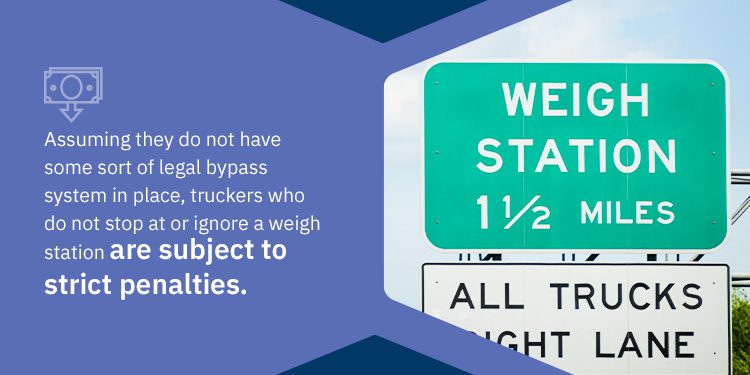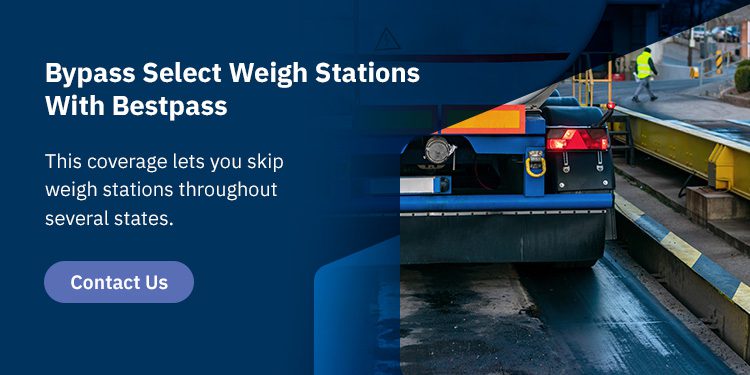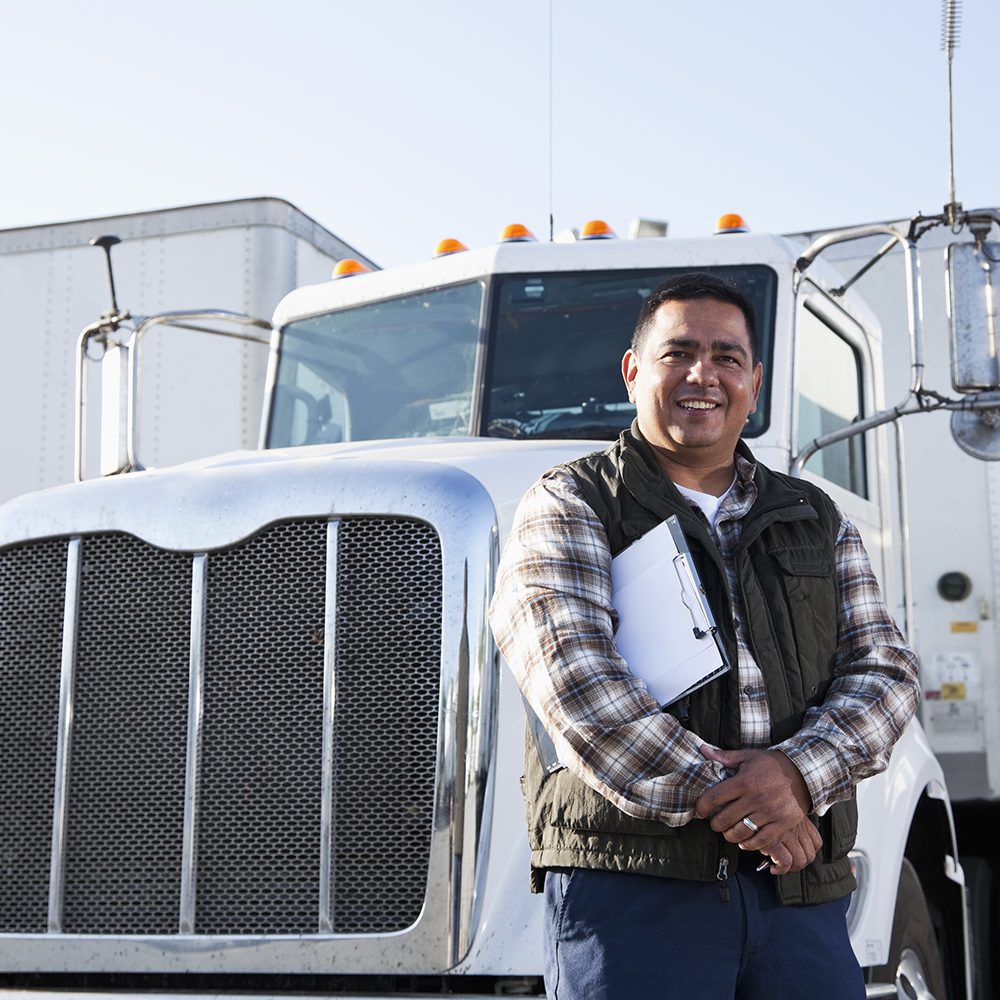
What Are Weight Stations?
Weigh stations are a common sight on America’s roads, and they play a key role in our transportation network. Knowing the basics, like what weigh stations are for and who they affect, is vital information for a trucker to know.
There are harsh penalties for those who avoid weigh stations without the appropriate legal measures, so you need to be sure you’re obeying the relevant rules and regulations while out on the road. Find everything you should know about weigh stations with this guide.
What You’ll Find at a Truck Weigh Station
Weigh stations, also referred to as “chicken coops” in trucker vocabulary, are set up along various roads, highways and freeways per rules from the United States Department of Transportation (DOT). A weigh station is a checkpoint specifically designed to weigh commercial trucks to ensure vehicles are not hauling more than their acceptable weight while on the road. You’ll usually see them situated on highway routes and at ports of entry at state borders.
What Is the Purpose of Weigh Stations?
The simplest version of what weigh stations are for concerns determining a truck’s gross weight to verify that each commercial vehicle passing through follows the laws and the safety guidelines set by the state. Roads and highways are rated for specific amounts of weight — if a truck exceeds this limit, it has the potential to damage the roads. Roadwork stemming from overloaded trucks wearing down the pavement tends to be expensive, and the resulting traffic delays are frustrating for everyone who must pass through the area.
Overloaded trucks pose a significant risk to bridges as well as roads, as the excess weight increases the chance of collapse. This is a massive risk to the safety of drivers and commuters using the roads. As such, weigh station rules declare that trucks must weigh 80,000 pounds or less to pass through a checkpoint — anything over this limit is a risk and cannot go through.
Taxation is another purpose of weigh stations — multiple states calculate taxes on transported goods based on how much the cargo weighs. Additionally, these checkpoints perform comprehensive DOT inspections ranging from level one to level six. Level six inspections are the most thorough.
DOT inspections involve checking every part of the vehicle to ensure it works correctly. The DOT official may ask to check the interior and exterior of a vehicle depending on the inspection level. They can also ask for the driver’s credentials and other necessary documents.
Why Do Trucks Have to Stop at Weigh Stations?

Assuming they do not have some sort of legal bypass system in place, truckers who do not stop at or ignore a weigh station are subject to strict penalties. The consequences of avoiding a weigh station vary from state to state, with some imposing large fines on the company and others requiring noncompliant truckers to serve jail time.
Not every type of vehicle is required to stop at a weigh station, as the different states have their own rules regarding who is required to go through for weighing or inspection. In most cases, trucks and commercial vehicles that are heavier than 10,000 pounds need to be checked.
To ensure they follow protocol and maximize their time spent on the road, truck drivers should familiarize themselves with the rules of every state on their route. Fleet managers should also be aware of the rules and exceptions so they can inform drivers beforehand and while planning routes.
If a weigh station is closed or out of service, truckers are legally allowed to skip it and keep moving. When a station is open, they will simply stop and have their vehicle weighed and put through any inspection the DOT personnel on-site deem necessary. Generally, once the truck has received a green light after its inspection, the driver is free to depart from the checkpoint.
Most of the time, being able to avoid penalties at weigh stations comes down to having well-informed drivers who are familiar with the process and consequences.
How Do Truck Weigh Stations Work?
Ultimately, maintaining safety on the road is what weight stations are for. The various inspections that occur at a weigh station gather information across many different areas — the following are some of the other tests that occur at weigh stations and the tools used to perform them:
- Fixed or portable scales: DOT officials use these tools to measure and record the weight of a truck’s axles to ensure that its load does not exceed the permitted amount.
- DOT inspections: There are several types of DOT inspections performed at weigh stations. During these inspections, a highway patrol officer will thoroughly sort through all relevant information pertaining to the load — this may include a detailed inspection of a driver’s logbook, CDL compliance, hours of service, International Fuel Tax Agreement (IFTA) license and several other documents. This examination confirms that the driver and the cargo are in compliance with all relevant guidelines and procedures.
- Safety inspections: Safety inspections involve law enforcement officials ensuring a truck is safe for the roads. They will perform official checks on rims, hoses, tires, brakes and other crucial components.
- Weigh-in-motion (WIM) systems: WIM systems use sensors that are able to determine the weight of a truck while it is moving. Many weigh stations have implemented this system to save time for both DOT officials and truck drivers. If the WIM indicates a truck is within the allowable weight limit, it gives them a green light. This technology can greatly improve the chances of a truck being able to get through the weigh station process quickly while still being legally approved.
Bypass Select Weigh Stations With Bestpass
Bestpass offers an optional service known as Bypass. This coverage lets you skip weigh stations throughout several states based on our partner agreements. Truckers will be able to save time and effort waiting in line and getting through weigh station procedures with Bypass, keeping trucks on the road and making it easier to meet tight delivery deadlines.
Investing in Complete Pass with Bypass will give you comprehensive pass coverage and 100% of major toll road coverage across 25 states. All it requires is a simple transponder installation — the device will automatically communicate with tolling gantries, making tracking and covering toll expenses effortless.
Bestpass offers a suite of solutions that makes trucking easier. From streamlining administrative work to planning out routes to keeping trucks on the road and out of the weigh station, we are your best friend and road companion. Contact our team today to learn more about how Bypass works and our solutions.


